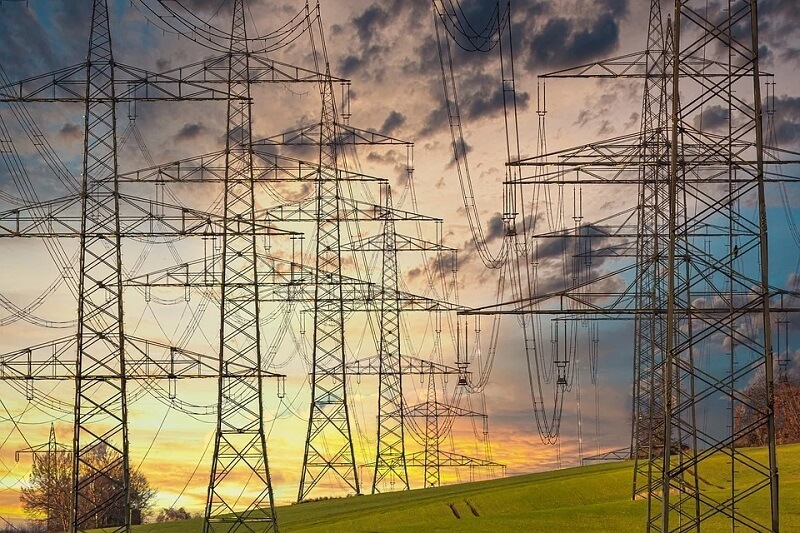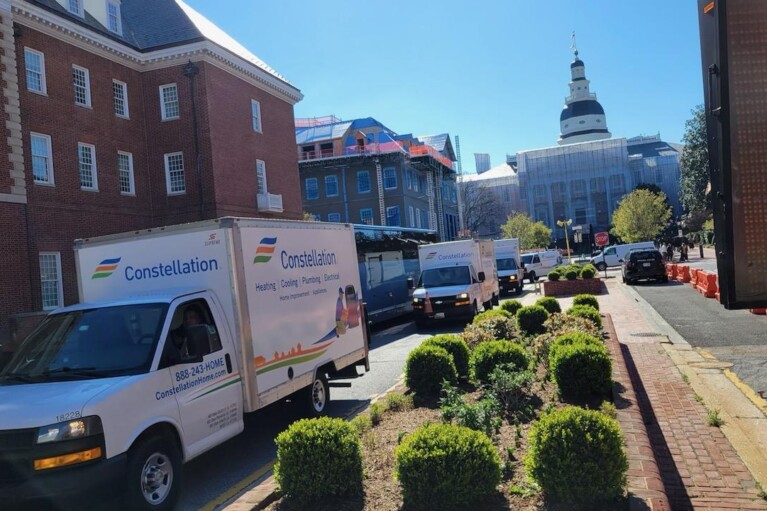
In his seminal book, “The Selling of the President 1968,” author Joe McGinnis famously describes how a Richard Nixon operative named Roger Ailes arranged televised town halls that featured pre-arranged questions from friendly audience members, so Nixon could hit them out of the park.
I was vaguely reminded of this at the Maryland Association of Counties summer conference last week, as I sat through a seminar sponsored by the Choose Who You Use Maryland coalition, which seeks to change state law to allow for more competition in the electric power market.
Right now, the Choose Who You Use Maryland coalition is a coalition of one: NRG Energy, the behemoth that’s operating in several states, most notably Texas. But you have to start somewhere.
“This is a brand new coalition,” Leah Gibbons, director of regulatory affairs for NRG Energy, explained. “We have a lot of aspirations to build it and grow it.”
Another NRG executive, Director of Government Affairs Sarah Battisti, put the company’s aspirations this way: “We are a business that would like to become more invested in Maryland.”
Maryland consumers may want to hold on to their wallets.
In the most recent legislative session, NRG was pushing for legislation that would have opened up Maryland’s electricity markets to greater competition. It didn’t go very far — and bill proponents didn’t expect something so complex and controversial to move in the middle of a pandemic. In fact, our article in March about the bill carried the cheeky headline, “Get Ready for the Big Legislative Fight of 2023.” But we weren’t too far off the mark.
In theory, competition already exists in Maryland’s power market, and has since 1999. But the bill that passed then carried a fail-safe — or a fatal flaw in the eyes of NRG executives. It allowed for the state’s dominant electric utilities to become the default electric supplier for ratepayers, unless they opt out and select a supplier of their own.
Predictably, most consumers, about 80%, have chosen to keep the existing arrangement, known as standard offer service, despite certain flaws in the system. The fact is, it’s easy and requires zero thought. More than 200 companies do attempt to compete with the utilities in the Maryland energy market, but it is a chaotic system, to say the least.
Some of these companies employ predatory practices to sign up customers, including hanging out in front of government social service offices in poor neighborhoods, promising savings that never get delivered. Just last week, the Maryland Public Service Commission, which regulates utilities in the state, fined one such energy supplier, SunSea Energy, LLC, $400,000 for deceptive marketing practices.
NRG executives argue that the time has come to change Maryland law. The company marshals an array of arguments.
One is that consumers are super savvy these days, that they already order a vast array of goods and services online. So why shouldn’t they be equally adept when it comes to signing up for electric power? Another argument is that competition will make all energy suppliers more accountable to the ratepayers.
Yet another argument, which takes on a degree of urgency during the worsening climate crisis, is that more competition in the market will mean more opportunities for consumers to purchase green energy less expensively than they are able to today. Maryland officials will want to embrace more competition, the company argues, as the state strives to meet increasingly aggressive clean energy mandates.
Well, OK.
There is little doubt that state policymakers are going to have to scramble to figure out how to meet the mandated renewable energy goals. And there will be multiple opportunities for strategic and aggressive clean energy companies to take advantage. Clean energy technology companies were everywhere at MACo last week, sponsoring every event, handing out swag, and reminding all those policymakers that they are good corporate citizens. And no doubt, many of them are — or are trying to be.
For a Friday afternoon session at MACo, when the energy and interest level of most participants starts to flag, and thoughts turn to the upcoming crab feast or getting the hell out of town, the Chose Who You Use Maryland event was fairly well attended. There were a couple of lawmakers, officials from the Public Service Commission, lobbyists from utilities, the political director for the Maryland League of Conservation Voters, and others.
But NRG executives and hired guns were the most prominent. The company came down with a team from Pennsylvania. It already has two well-placed Maryland lobbyists on the payroll, John Fiastro and Brett Lininger, and has been using political operative Len Foxwell for communications help in the state.
More recently, NRG has signed Cornerstone Government Affairs to add to its Annapolis lobbying firepower. Cornerstone has a rainbow of Annapolis lobbyists and other representatives with ties to both House and Senate leadership, and is buttressed by a national lobbying practice that includes offices in Washington, D.C., and several other state capitals. Former Senate Finance Committee Chair Thomas M. “Mac” Middleton, who knows a thing or two about utilities and energy policy, is a new member of the Cornerstone team.
But the Choose Who You Use Maryland briefing was a little on the surreal side. While we were being brought up to date at the MACo session by NRG executives, some of the NRG consultants raised their hands to ask questions. Roger Ailes would have been proud.
One of the biggest fears that the idea of more competition in Maryland arouses is the knowledge that the electric grid in Texas failed miserably this winter during unusually harsh and icy conditions. The reason why this catastrophe won’t be repeated in Maryland, NRG officials insist, is that Maryland utilities are connected to a regional electric grid, which gets its power from a variety of sources and has lots of backup. That wasn’t the case in Texas, where the state has its own electric grid.
But regulators remain skeptical. During the last legislative session, the PSC testified against the bill to expand competition. A leading legislative expert on energy policy, Del. Lorig Charkoudian (D-Montgomery), was at her prosecutorial best during the hearing in March and again at Friday’s briefing in Ocean City.
Is the current system perfect? Of course not. Are Maryland utilities too comfortable, too entitled, too protected by their battalion of lobbyists who work to preserve a system that has benefited them for decades and decades? Of course.
But there’s plenty of reason to be skeptical of what NRG and its mythical coalition partners are peddling.
Are many consumers web-savvy these days? Sure, we can stipulate that. But how many read the fine print on any contract they are confronted with, ever? How many consumers have been locked into bad, long-term cell phone deals that sound good for a while but eventually go south? Who is prepared to protect the consumers in an even more unregulated energy market, where even the most sophisticated ratepayer can become confused by the terminology?
NRG officials acknowledge that their legislative push is going to take a lot of time, and, particularly as the pandemic continues to rage, it won’t be easy to make electric competition a priority for more than a handful of lawmakers at this point.
In an attempt to boost its profile, the Choose Who You Use Maryland coalition distributed plastic bibs with its logo at MACo’s crab feast Friday night. It seemed like an apt metaphor for the messy legislative debate to come.





 Creative Commons Attribution
Creative Commons Attribution